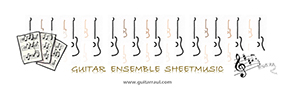Erol Ozsever
https://scholarworks.iu.edu/dspace
Conservatory music students spend a substantial amount of time in practice rooms throughout their diligent pursuit of excellence. Students confront the challenge of a conservatory education armed with the belief that with ample hard work and persistence that he or she will reap the rewards of the highest degree of artistry and mastery. Yet some musicians seem to exponentially excel with only a moderate quantity of hours spent in the practice rooms, while others practice seemingly obsessively and achieve no more fruitful of results and are bound by long periods of stagnancy. This point of diminishing return can lead to frustration and underperforming.
Clearly the answer lies not with the number of hours one invests in a practice room, but rather how effectively and efficiently the practicer utilizes his or her time spent (Duke et al., 2009; Miksza, 2007). Cognitive psychologist Dr. Gary Marcus—author of Guitar zero: The new musician and the science of learning (2012)—wrote the book using his own expertise to conduct research on musical skill acquisition and motor skills using himself as a test subject. He writes, “When practice regimes aren’t selected with care, the learner may wind up automatizing bad habits and thus enshrine sloppy or inadequate procedures, in a way that impedes future progress.” (2012, p.52)
In a study conducted in 2002 (Kostka), music students and faculty members were surveyed regarding specific behaviors and time spent while conducting practice. The faculty members on average expected their students to practice for approximately 14 hours per week, while the students reported practicing only an average of approximately 10 hours per week. If, in fact, the underlying issue is that students do not have as many hours available to devote to practice as advised by their faculty members, it is especially important to acquire a more concrete understanding of what makes practice most efficient by yielding the best results in relation to time spent.
Cognitive and metacognitive learning strategies for skill acquisition among conservatory guitarists





